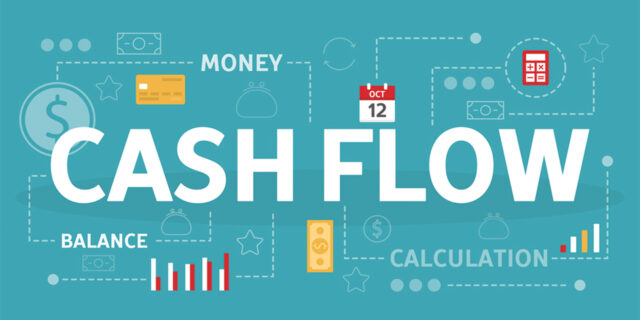
SANDRA LAZAR
INDUSTRY RESEARCH INDICATES THAT 82% OF SMALL BUSINESSES FAIL DUE TO POOR CASH FLOW MANAGEMENT. WE’VE ALL HEARD THE TERM “CASH IS KING. SO HOW DO WE WORK ON ENSURING THAT WE HAVE THE PROPER CASH FLOW THAT’S NEEDED IN OUR BUSINESS?
What is Cash Flow?
Cash flow measures the company’s sources and uses of cash. When a customer pays for goods and services, the money received is a source of cash, also called “cash in.” When a business pays its bills or its employees, that is considered a use of cash, or “cash out.”
When the amount of cash coming into the business is larger than the amount of cash leaving the business, there is a positive cash flow. That is a good sign.
On the other hand, if a business has more cash leaving the business than coming into the business, it has a negative cash flow. This is problematic for a business. One way to avoid having a negative cash flow is by doing a cash flow forecast.
What is Cash Flow Forecasting?
A cash flow forecast is similar to a budget. However, rather than summarizing prior activity, the forecast looks ahead to predict and plan future cash flow. Cash flow forecasting is important whether a business is doing well or struggling. Regularly preparing cash flow forecasts is considered good financial hygiene. Knowing what’s likely ahead can help businesses plan accordingly. For example, companies with a cash-positive forecast might look to make some investments, expand their operations or make additional distributions to its owners. Cash-negative companies will need to keep close tabs on their cash flow to keep operations running smoothly by paying suppliers, employees, taxes and lenders on time.
How do I manage my business’ cash flow?
Stay on top of your bookkeeping regularly. This means having your accounts reconciled monthly and keeping information up to date. Having an experienced bookkeeper to handle this is crucial to your business.
Generate cash flow statements to be analyzed monthly. Analyzing your cash flow will give a deep level of visibility for your business. The statement will help you determine whether you need to increase your cash flow. It will also help you see what areas of the business to focus on.
Look to see where you can streamline your spending. Overspending can result from covering unnecessary expenses or paying for expenses at times that are not strategic.
Rinse & Repeat: The more you analyze your financial statements, the better you will become at spotting opportunities to increase cash flow and nip shortages in the bud before they become larger issues.
There is a famous saying: “Revenue is vanity, profit is sanity and cash flow is reality.”
This article is to be used for informational purposes only and does not constitute legal, business, or tax advice. Each person should consult his or her own attorney, business advisor, or tax advisor with respect to matters referenced in this post. Lazar Accounting assumes no liability for actions taken in reliance upon the information contained herein.
Sandra Lazar graduated Brooklyn college in 1995. She has served as a CFO in a variety of businesses for the past 25 years.



